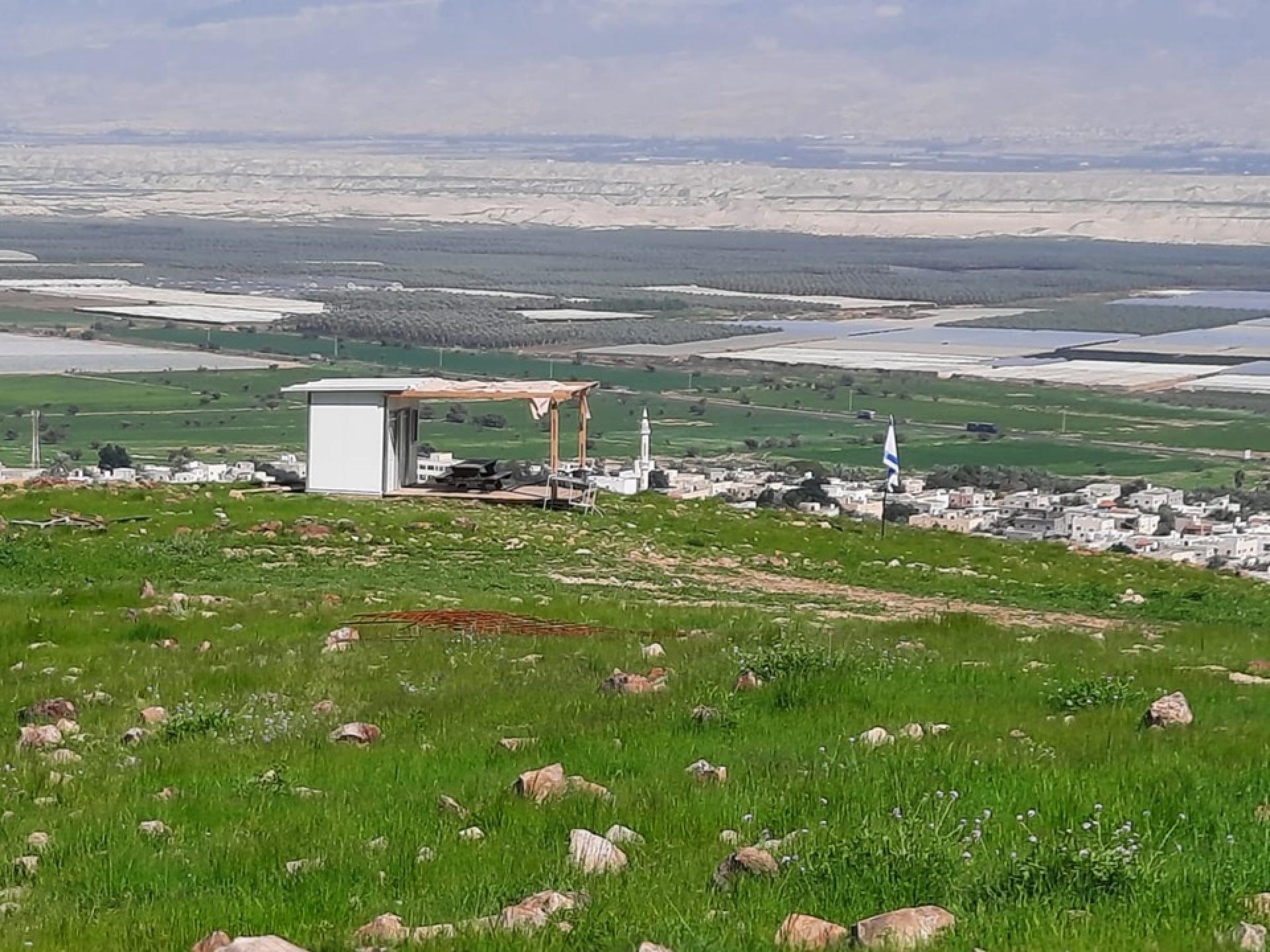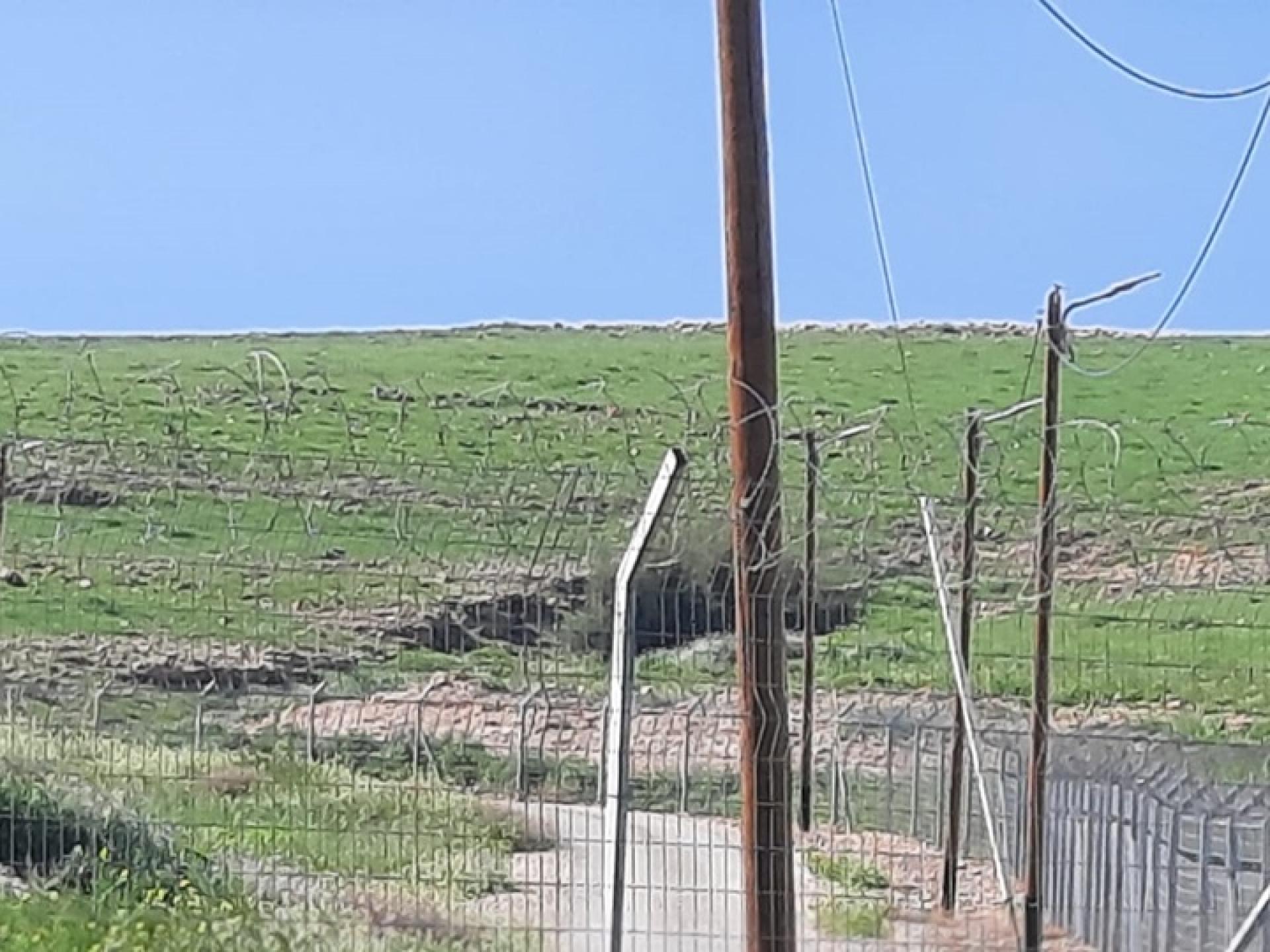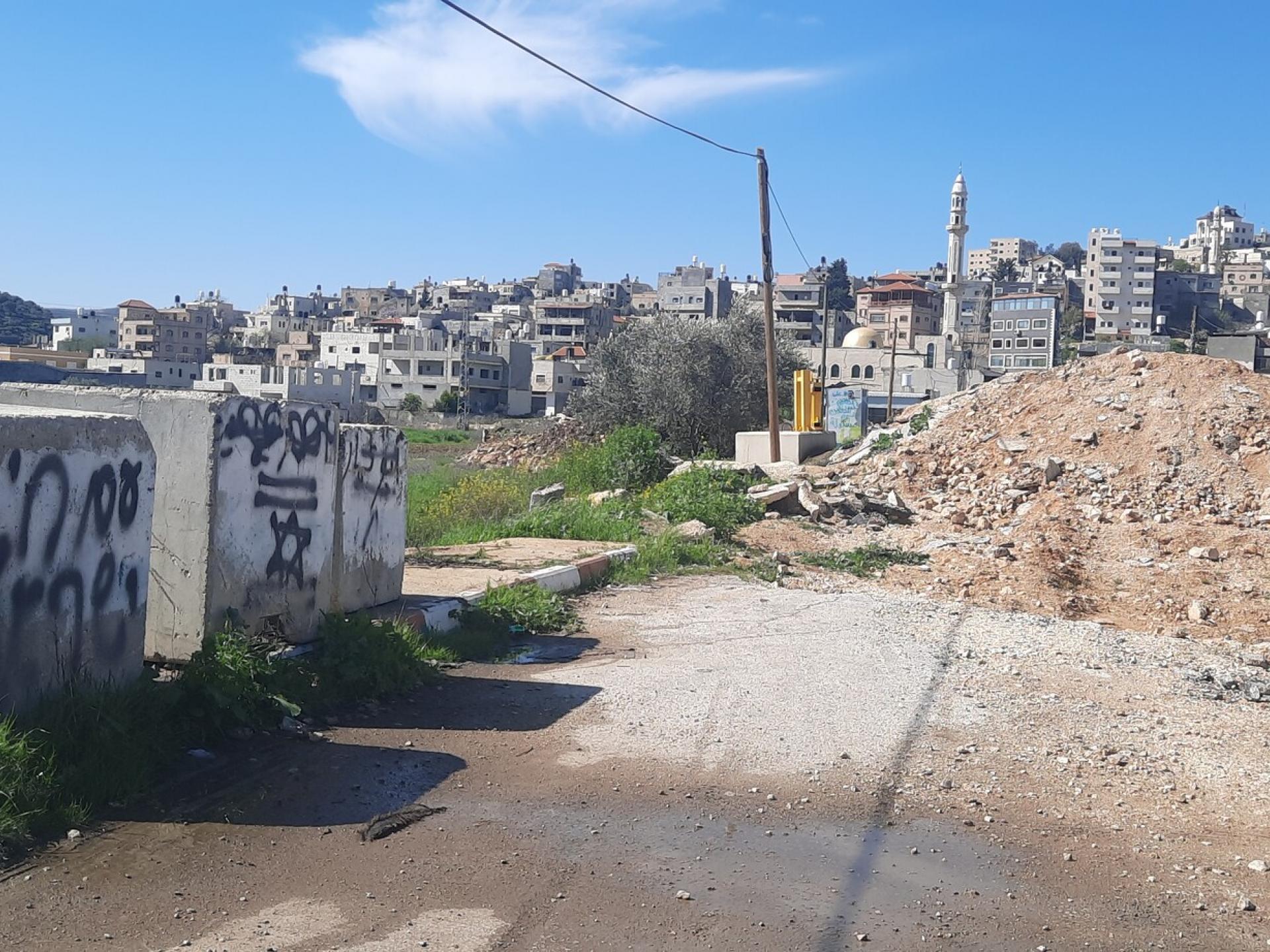Fasail, Jordan Valley: The state is starving, blocking and exhausting the Palestinian residents
We drove to the national eye hospital at Turmus Aya to make an appointment for Miriam. Miriam used to be blind but thanks to injections she has been receiving in her eyes for the past 3½ years, she can now see. On the way, we saw how all the entrances to the villages have been blocked with enormous rocks and high piles of earth, like the main entrance to Al Isawiya in the photo. And all the side entrances, narrow paths, are blocked in a similar way.
A local taxi driver told us about other roadblocks and said that the main road (the road to Shiloh, Shvut Rachel, etc.), which connected the Palestinian localities along Route 60 with those on the Allon Road, has been closed to traffic for many years with an electric gate and armed guard.
The punishment for Palestinians in the West Bank following the October 7 massacre is malicious and contravenes international law. Israel is occupying the West Bank and as such is obliged to take care of residents’ needs. But in fact, since October 7, it has been starving them, denying them the possibility of earning a living, and preventing them even from harvesting the olives in their private property. For five months the entire West Bank has been shut down and starved. It was not the West Bank or its people who committed the horrendous crime of October 7, but the appalling suffering inflicted upon them is evidence of the government’s fundamental policy and its goal of causing harm to the Palestinians.
We drove along the apartheid road that goes across Shiloh to the Allon Road. The whole area is covered with dozens of settlements and outposts, each one abutting on the next and all of them pretty with magnificent construction and, of course, connected to the roads, electricity and water. The area has been completely taken over.
We visited Fasayil two weeks earlier and ran into the evicted residents of Malihat (around Hamra), living in abject poverty with absolutely nothing. We visited them in their home in Malihat in the summer – an attractive, whitewashed stone house with vegetables and flowers growing in the garden. They told us how the settlers Moshe Sharvit and Coco made their lives miserable with the army’s backing: they came to their home and threatened them, ran their flocks over, and attacked them physically. Protected by the war, these criminal settlers attacked them so violently to the point that residents fled from home to Fasayil taking nothing with them. We brought them clothing, shoes, lots of towels and blankets. It broke our hearts to see the misery they now live in because Fasayil is also the victim of settler violence (from the Malachi Shalom outpost atop the hill overlooking the village). About eighteen months ago, the settlers established a farm halfway up the mountain, from where they gained control of the springs and the pipes bringing water to the Palestinian village and the whole area on the back of the mountain, which was used by 30 families of shepherds who live in Fasayil. Today the shepherds graze their flocks in between the houses and alongside Route 90. The former grazing area is full of weeds and there’s not a soul or a flock to be seen. This week we saw how the settlers had fenced off the area and the paths leading to it and have built another hut that overlooks and dominates the village. The springs were closed off to the villagers ages ago and they receive water only once every four days.
Next we continued to Hamra to visit the family of Mahmoud, who has already been in detention for six weeks because he shared a post on Facebook showing an imam lamenting the death of the children in Gaza and the destruction of Gaza. His wife is hard at work harvesting and selling tomatoes, zucchini, and strawberries, and grazing and caring for the flock. She’s also caring for her family – three small children, a couple of elderly parents, and two sisters with Down syndrome. The judge said that he had to consider the appeal against Mahmoud’s arrest and in the end dismissed it because of Mahmoud’s “dangerousness.”
Grandfather Zubaa, Mahmoud’s two sisters and the little girls were in the pasture, and when they filed back home, it was a delight to see the girls and the sheep with their heavy udders, and grandfather bringing up the rear.
.



